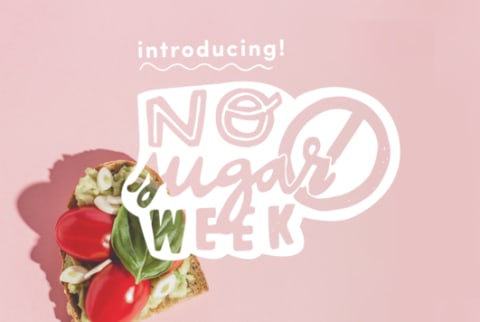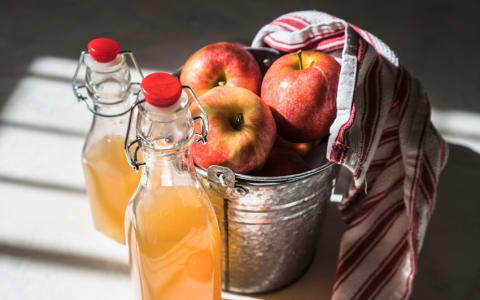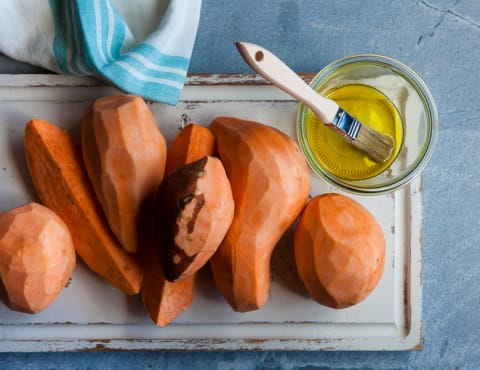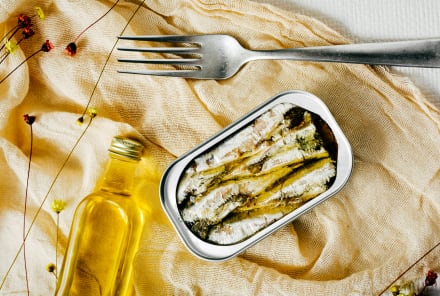Advertisement
The 'Sugar Destroyer' Herb + 8 Other Tips For Quitting Sugar That Blew Our Minds



Do You Want to Try mbg's One-Week No-Sugar Challenge? (Uhh, Yes!)
Here are the rules:
- You'll make the pledge to give up sugar for one week.
- No sugar means no added sugar of any sort—no coconut sugar, no maple syrup, no honey. Fruit sugar is OK in limited quantities (and stay tuned on the site, because later this week, we'll be diving into the science behind whether fruit sugar is good for your body)..
- Share your no-sugar week recipes, tips, and reactions on Instagram using the #mbgnosugarweek hashtag—we'll be regramming our favorites all week long (and even sharing some here on the site!).
- Follow along with the great pieces on mindbodygreen.com daily, as we have some great pieces lined up to help you on your journey, including the no-sugar smoothie celebrities are obsessed with, no-sugar desserts that will make you drool, a psychologist's best advice for going through sugar withdrawal, an exploration of alternative sugars (maple, stevia, erythritol—we get into the good, the bad, and the ugly), and so much more.
1. Find the sweetness in your life.
The common thread in people who suffer from sugar cravings is a lack of self-nurturing. They are often the types who take care of everyone else and put themselves last. So, their reward to themselves is the sweets. But what is really missing is finding the sweetness in their lives. Creating space for themselves. Finding time to do things they really love to do. Often, the people who are most susceptible to sugar cravings are working stressful jobs, living stressful lives, completely out of balance. They have disconnected from what their passions are in life, and life has become a series of obligations rather than enjoyment. So, taking the time to create space and find the sweetness in life is a great long-term strategy to avoid sugar. If the person is satisfied in all aspects of their lives, there is less reason to reach for the sweets when stressed.
—Vincent Pedre, M.D., and best-selling author of Happy Gut
2. Drink apple cider vinegar.

Apple cider vinegar helps to change your taste buds to the point where sugary foods taste too sweet. I have found people to crave less junk when they sip apple cider vinegar throughout the day.
—Jess Sepel, mbg class instructor and author of The Healthy Life
3. Take the "sugar destroyer" herb.
Gymnema sylvestre is an herb in the milkweed family and known as a "sugar destroyer" in ayurvedic medicine, as it desensitizes our taste buds to sweet items. It can help promote healthy blood sugar levels and reduce cholesterol due to supporting a healthy pancreas and liver function. It helps regenerate beta cells in the pancreas, which secrete insulin in order to take up sugar into the cells for energy. It also helps make cells more sensitive to receiving insulin. We tend to crave sweet items when we're low on energy (perhaps not enough insulin or cells are resistant), stressed (increased cortisol causes the body to use sugar so we need to replenish), or poor sleep (also increases cortisol), for example, and gymnema helps balance spikes in blood sugar that could additionally be triggered by a poor diet. A few drops on your tongue before a meal can offset desiring sugar and last for about three hours, especially in conjunction with a nutritious diet and the desire to quit sugar. However, caution should be used if someone is taking oral medication or insulin, as it can alter prescription dosages.
4. Become a sugar detective.
One of the best ways to quit added sugar is to get really good at learning how to find it. Simply looking at the grams of sugar will not cut it since sugar can come naturally through dried fruit. The industry has gotten very good at masking sugar and calling it by other names. I usually teach my clients two important rules: 1) if it ends in "-ose," it's sugar, and 2) if it ends in "syrup" it's also a sugar. Some frequent ones that appear healthy but are still sugar are brown rice sugar, date sugar, and of course, sucrose, fructose, and lactose.
—Lisa Hayim, R.D., founder of The Well Necessities
5. Know that sugar replacements won't satisfy your cravings.

Don't try to replace sugar with fruit and expect to be satisfied. Seltzer is not cola, and a banana is not a cookie—and that's totally OK. Let those non-sugar items be their own awesome things instead of consolation prizes, and take this opportunity to try new stuff and find something new you like. Rather than focusing on what you can't have, think about what you can have as well as some foods and beverages you've been curious to try. For example, maybe your colleague's favorite ginger tea always smells amazing, but you've been in a rut with your sugary coffee drink. Now is a great time to give something different a shot. You might find something you love, and the novelty can help distract you from sugar FOMO.
—Jessica Cording, R.D., founder of Jessica Cording Nutrition
6. Eat almond butter.
The most helpful tip I know of for quitting sugar is to keep your blood sugar stable with almond butter. Keep a jar on hand at work, at home, and in your bag, and feed yourself a spoonful about a few times throughout the day. This will ensure steady blood sugar, warding off any blood sugar crashes that can make you go scavenge for a hit of sugar. The combination of protein and fat in almond butter is the reason for decreasing your craving, as it helps regulate your blood sugar levels for a longer period of time.
—Ellen Vora, M.D. and instructor of mbg classes on anxiety and insomnia
7. Train your taste buds to like bitter.
Train your taste buds to like the taste of bitter—it really does a lot to suppress the cravings for sugar. Try to eat as much plain, unflavored Greek yogurt as possible, in addition to bitter greens like watercress and bitter melon. Within 30 days, your taste buds will reset and you'll crave less sugar.
—Kim Suddeath, R.D., founder of Unrefined RD
8. Add nature's candy to healthier homemade dishes.

Since most commercial dressings have loads of added sugar, our taste buds have been trained to crave a pop of sweetness in our salads. I used to add a handful of dried cherries or cranberries until I discovered that even those are usually sweetened further with fruit juice concentrates. Now it's all about that root-veg base. Sweet potatoes, butternut squash, and parsnips become nature's candy when baked at high temperatures in the oven until crispy—hello, healthy fries! But they're also great for topping salads. Caramelized onions or crispy coconut oil fried shallots are another great sweet addition.
—Phoebe Lapine, mbg class instructor and author of The Wellness Project
9. Eat fermented foods whenever that sweets craving kicks in.
I have the biggest sweet tooth, despite being a health food editor, and I've tried everything to eliminate my own (rather persistent!) cravings. I've found that fermented foods work best for me—a few tablespoons of sauerkraut, fermented beet, or a gut shot will quell a craving in seconds. Whether it's the friendly little bacteria eating those sugar-desiring yeasts in my gut or just the strong, sour flavor on my tongue, it's become my go-to. Just make sure your fermented product is raw (not pasteurized!), so all those good bacteria are intact.
—Liz Moody (me!), mbg sr. food editor)


















